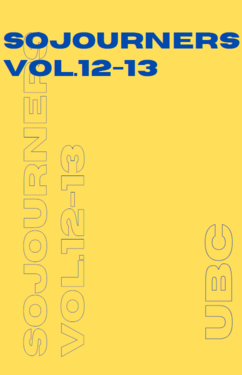Deliberations of an Ethically Uneasy Student and Research Assistant in Vancouver’s Downtown Eastside
DOI:
https://doi.org/10.14288/soj.v12i1.196649Abstract
How do you begin to research in one of the most researched places in the world? How do you ensure that your research benefits the community you’re studying—treats them like the resilient community they are, instead of reducing them to test subjects for your own professional gain? How do you ensure that you, as a researcher, do not exaggerate the various negative effects academics have previously exposed (but, not addressed) within these marginalised communities? Over the course of 6 weeks, my colleague and I observed a research project in Vancouver’s Downtown Eastside. During that time, we also participated in class at a university program hosted at an organization called the Ideas Bazaar in the DTES where we studied ethnographic research techniques as well as their effectiveness in researching marginalised communities in the morning, as well as assisted and observed a community-based researcher in the afternoon. This ethnographic account of my time at the Ideas Bazaar analyses the role deliberate intention can play in ensuring ethical standards of conducting research in Vancouver’s Downtown Eastside, especially given the significant number of marginalized people residing in this vibrant community. This article utilises pseudonyms and other anonymization techniques to protect the identities of the persons and organizations listed therein.
Downloads
Published
Issue
Section
License
Copyright (c) 2021 Sojourners Undergraduate Journal of Sociology

This work is licensed under a Creative Commons Attribution-NonCommercial 4.0 International License.

